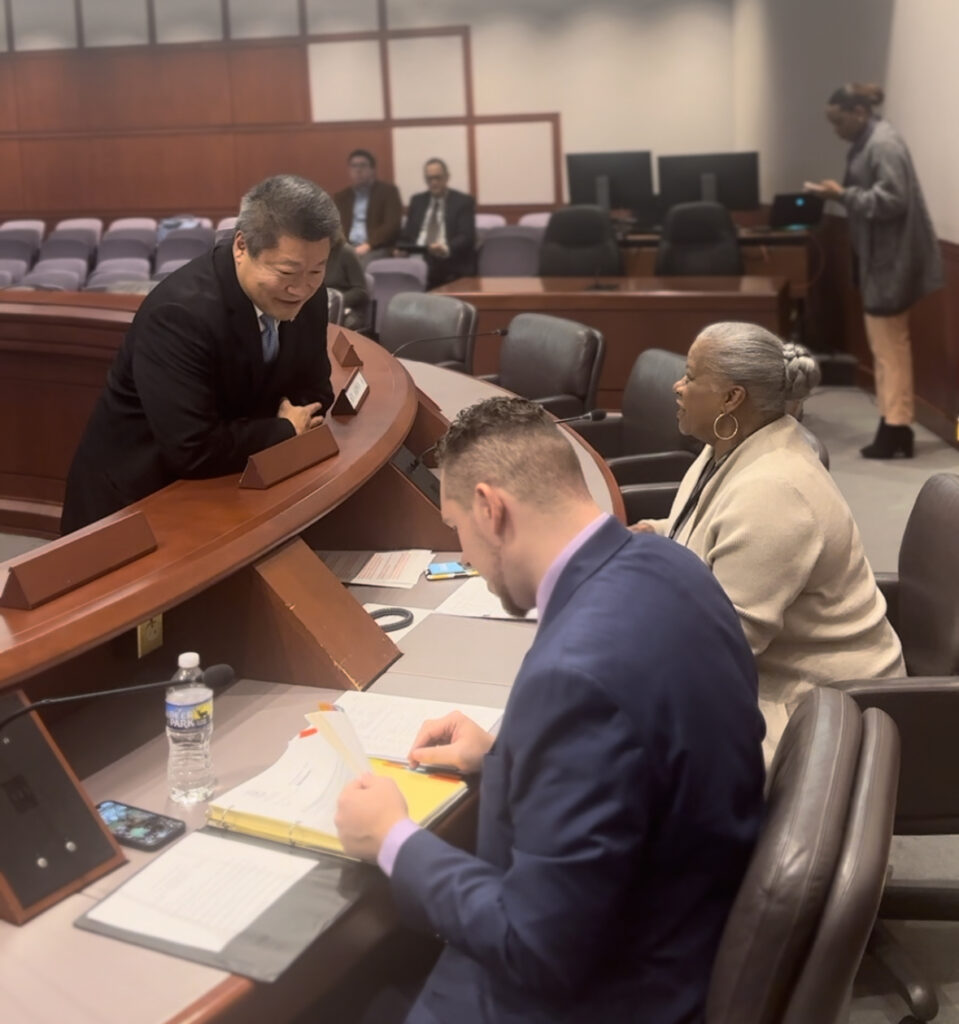Senator Hwang Promotes 8-30g Affordable Housing Exemptions for Protection of Watershed and the Environment
March 6, 2024March 5th, 2024
Senator Hwang Promotes 8-30g Affordable Housing Exemptions for Protection of Watershed and the Environment
TESTIMONY LINK: https://www.youtube.com/watch?v=XTRwEvBYACE
Hartford – Senator Tony Hwang testified today in the Connecticut General Assembly’s Housing Committee in support of HB 5333: An Act Concerning a Study of the Affordable Housing Appeals Process. This bill would require the Commissioner of the Connecticut Department of Housing to study the affordable housing appeals process under Connecticut General Statutes Section (CGS) 8-30g to examine ways in which the program can work better for all stakeholders involved.
CGS 8-30g requires each municipality to have 10% of their housing stock as affordable housing. If a town has not achieved this goal, and an affordable housing developer has a proposed project denied by such a municipality, the developer can circumvent & override local zoning and appeal directly to the state to intervene and permit the developer to build. The burden of proof is then placed on the municipality to prove that an exception should be made. The only recourse for the municipality is to prove that the project would pose a public safety threat.
“Since the statute was enacted in the late 1980’s, many towns have not achieved that 10% goal set forth by 8-30g. The goal is noble, but the system clearly isn’t working. There is an opportunity here to open up a study related to this affordable housing statute. The focus will be an opportunity to re-evaluate what has worked, and what has not.” Said Senator Tony Hwang.
Senator Hwang notably pointed out that watershed areas are uniquely threatened by 8-30g high density housing projects that lead to water runoff containing pollutants and toxic chemicals. Watershed designated communities have designed and maintained expansive zoning regulations to protect local watershed areas from potential drinking water contamination to ensure public health & safety. Connecticut’s drinking water is located in a handful of small towns that rely on low-impact development and large lot sizes to protect the water that flows into the reservoirs. This territory has full protection under wetlands laws and water regulation laws. Due to the exemption of zoning laws for 8-30g developments, there’s a looming threat of development, jeopardizing watershed areas’ abilities to provide essential ecological services like safeguarding drinking water from drought and pollution.
“Density building does not fit in every community. I would love the study to look at watershed communities to be considered for an appeal process for an 8-30g exemption. In my district, Easton is over 70% watershed, providing drinking water to the surrounding area. They must have the ability to justify rejecting any project that may pose a threat to this vital resource without an adequate sewage disposal and management program.” Remarked Senator Tony Hwang.
Senator Hwang also noted that 8-30g economically encourages private developers to build large, out-of-scale, dense developments that violate zoning, environmental and private property rights, justifiably angering residents, zoning and community leaders. Hwang highlighted solutions that reinforce the need for a collaborative effort among stakeholders to find ways to encourage more appropriate duplexes under 8-30g.
“8-30g bases its premise, and is dependent, on private development to create affordable housing. That premise has led to a significant economic struggle when you look at lower Fairfield County where land value is disproportionately higher than any geographical region in Connecticut. With the economic pressure of outsized land pricing, the rationale for building out increased density developments makes economic sense for better return on building investments. Our solution for more affordable, accessible and diverse housing needs to emphasize and empower collaborative relationships with local, state and federal governments together.” Said Senator Tony Hwang

